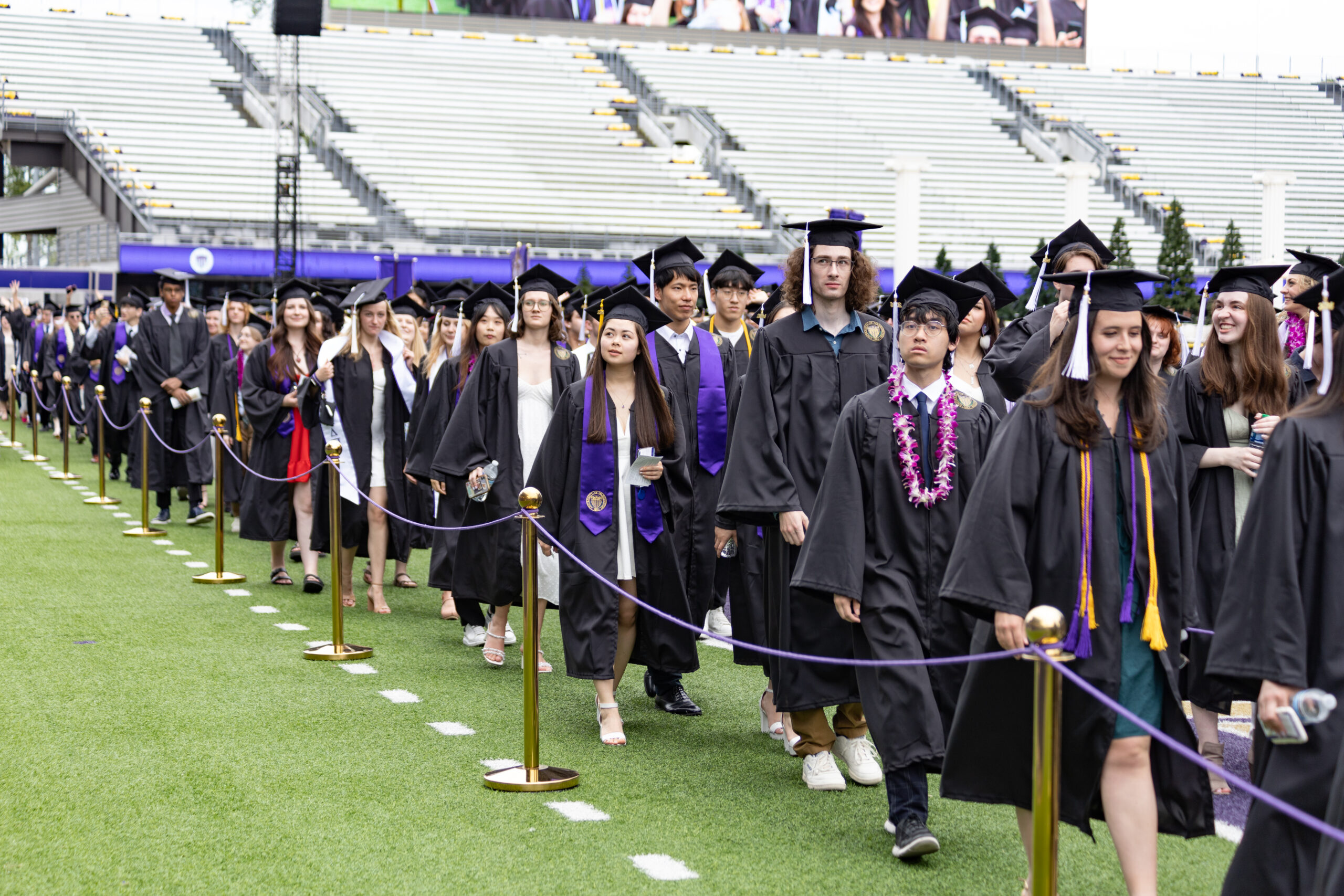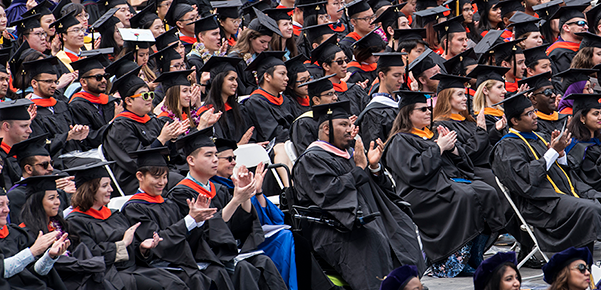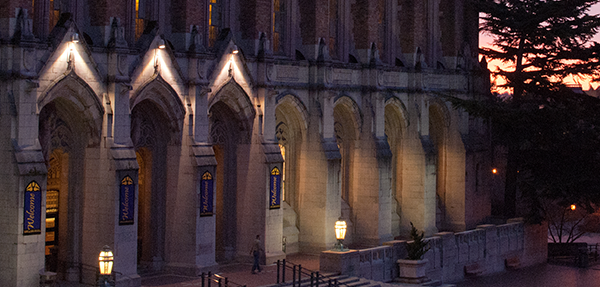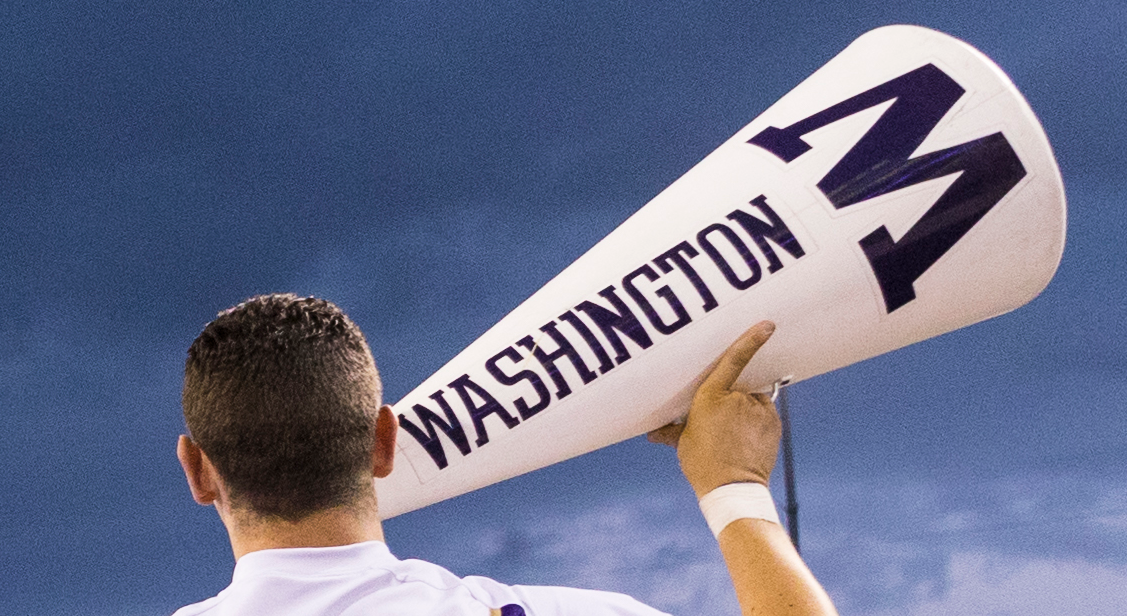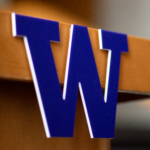The mission of the University of Washington is to preserve, develop, and disseminate knowledge. The Office of the University Registrar (OUR), located on the second floor of Schmitz Hall, provides administrative services to students, faculty, and staff in support of this mission.
OUR Mission Statement
UW Standard of Excellence
The Office of the University Registrar (OUR) is the steward of the University of Washington’s academic history, maintaining the integrity of our records and documenting the excellence of our students. The commitment to service is demonstrated every day in a variety of registration activities that support and implement faculty policies affecting teaching and learning.
Academic Community
We are part of and serve the academic community by offering administrative resources for students, staff and faculty, such as processing requests for transcripts, diplomas, and enrollment certification.
The OUR participates in various campus-wide committees working with our colleagues to help students better navigate through the University.
World Leaders in Research
The OUR supports University reseach by providing institutional data for various studies as well as preserving student data for historical research.
Celebrating Place
Through publication in the General Catalog, the OUR preserves the academic history of Washington State’s oldest institution of higher education.
Through our Residency Classification Office, we have promoted judicious policy change for optimum use of State resources. We also help state workers have access to higher education through the Washington State Tuition Exemption Program.
Being Public
We are committed to serving both students and the public by providing access to educational records during a students time at the UW and afterwards.
We serve the public trust by supplying accurate reporting to the state. Data security is upheld through systems monitoring. Student’s privacy is protected through adherence to FERPA guidelines.
Spirit of Innovation
We are responsive to emerging needs by giving people the tools to be more self-directed and knowledgeable, through systems like improved online services, R25, Quick Stats, and DARS.
We incorporate innovative methods for measuring University resources such as X25, which provides cogent reporting of space utilization. Our Student Data Base (SDB) documents student research that leads to innovation.
World Citizens
The OUR supports the UW’s vision of creating world citizens and maintaining systems that help UW students keep in touch with their UW records while studying abroad.
We also administratively support the UW’s efforts to reach out to other institutions in times of need (as seen following the Hurricane Katrina disaster).
We support lifelong learning through the ACCESS Program, providing 60+ year old students an opportunity for tuition-free higher education, which brings richness and diversity to the classroom.
Role of the Registrar
The Office of the University Registrar, located on the second floor of Schmitz Hall, provides administrative services to students, faculty, and staff in support of this mission:
- Maintains students’ academic records
- Ensures the impartial application of policies governing grading, registration, residency, and graduation
- Publishes the quarterly Time Schedule and the General Catalog on the Web
- Schedules courses in general-purpose classrooms
- Coordinates course registration
- Maintains university curriculum and serves as the central office for the course approval process
- Provides students’ academic transcripts
- Maintains the student address and telephone directory
- Administers the Residence Classification Office
- Monitors students’ academic progress
- Provides the final degree review of undergraduates
- Coordinates the distribution of undergraduate, graduate, and professional diplomas
- Advises students, faculty, staff, and the public on academic policies and procedures
Registrar & Admissions Affiliations
- WaACRAO – The Washington Association of Collegiate Registrars and Admissions Officers. Serving Washington’s Higher Education Community
- PACRAO – The Pacific Association of Collegiate Registrars and Admissions Officers site includes constitution and bylaws, leadership position descriptions, executive board, conference information, and a searchable directory.
- AACRAO – American Association of Collegiate Registrars and Admissions Officers
- Academe Today – A service of The Chronicle of Higher Education.
Registrars Throughout the Years
A strong connection to the University’s history is an important part of the Registrar’s duty. In the spirit of that duty, here are those who’ve held the title of the University of Washington Registrar.
| Registrar |
Tenure |
| Helen B. Garrett |
2016-Present |
| Virjean Edwards |
2010-2015 |
| Todd Mildon |
2005–2010 |
| Van Edward Johnson |
1991–2004 |
| Melanie Bell |
1986-1991 |
| W. W. Washburn |
1970–1986 |
| Patsy M. Christensen |
1969-1970 |
| John Gardner |
1965–1969 |
| Carl G. Young |
1964–1965 |
| Ethelyn Toner |
1945–1963 |
| Irvin Hoff |
1941–1944 |
| Dean Newhouse |
1936–1941 |
| Edward Bicknell Stevens |
1925–1935 |
| Edward Noble Stone |
1910–1925 |
| Herbert Thomas Condon |
1903–1910 |
| William John Meredith |
1901–1903 |
| Clark Davis |
1897–1901 |
| Edmond S. Meany |
1894–1897 |
